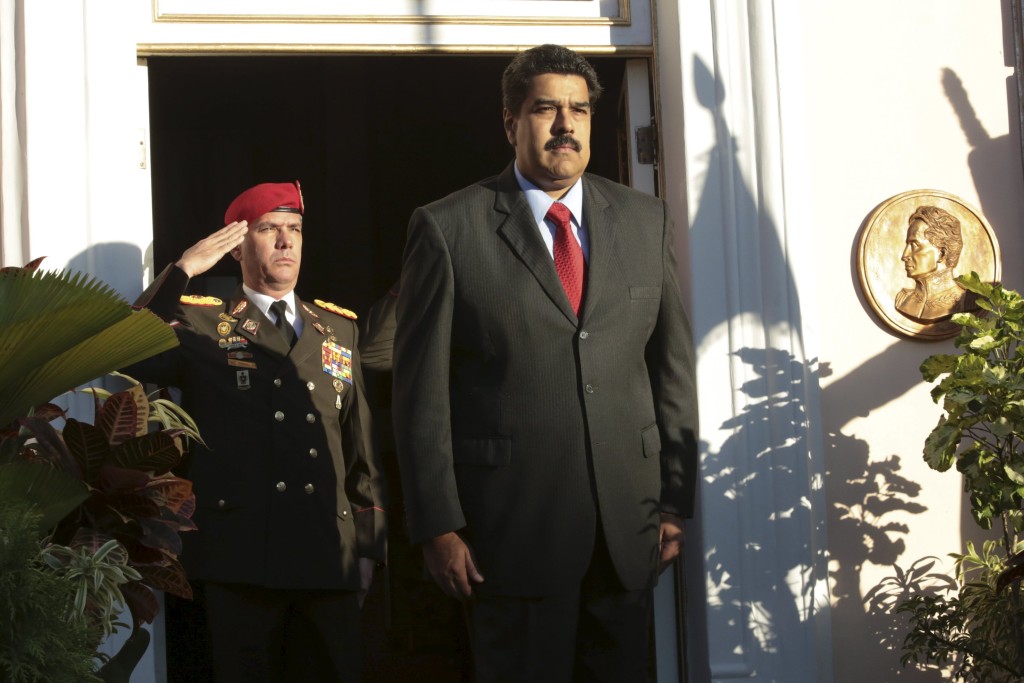MUD coalition leader Ramos promises a new president in six months, hints at public vote
Newly elected Venezuelan deputies are banking on a recall referendum or an amendment to the laws of the land to remove Nicolás Maduro from power, now new National Assembly chief Henry Ramos Allup has declared his intention to remove the president through “constitutional” means.
“Within six months from today, we will seek a constitutional, democratic, peaceful and electoral exit, for the cessation of this government,” Ramos, who was chosen by opposition lawmakers to head the chamber, said on Tuesday in comments reported in the local press.
His words echoed the sentiments of many opposition leaders, who have pressed that line repeatedly since winning the recent legislative elections. Though Ramos did not specify how the Democratic Unity Roundtable (MUD) coalition would achieve its aim, the opposition’s deputies have three options still on the table — a recall referendum, constitutional amendment or Maduro’s resignation.
Venezuela’s Constitution allows for a referendum half-way through a presidential term, which would be April for Maduro, but the opposition would face a logistical nightmare, needing the signatures of 20 percent of registered voters in order to trigger such a move. Additional complications could come in the form of the National Electoral Council (CNE) which would oversee such a process — the opposition argues the body is controlled by Socialist loyalists.
“Within six months from today, we will seek a constitutional, democratic, peaceful and electoral exit, for the cessation of this government,”
With the MUD now holding a two-thirds “supermajority” in the National Assembly, that means a consitutional amendment, one potentially trimming the length of Maduro’s presidential term, may be the easiest path. But first, the opposition will have win its battle over the Supreme Court’s controversial suspension of three lawmakers in the chamber, which the MUD swore-in yesterday nonetheless, defying the courts.
Speaking at the swearing-in ceremony, Ramos said “here and now, things will change.”
His declarations will likely embolden Socialist lawmakers and supporters, who see such a move as undemocratic, considering Maduro won a presidential election in 2013 which gave him a six-year term.
Two-time presidential challenger Henrique Capriles called for lawmakers to take decisive action to tackle the country’s ongoing economic turmoil, rather than focus on removing Maduro from power. Many in the coalition though argue that Maduro must go in order for any solution to emerge.
The opposition’s deputies have three options still on the table — a recall referendum, constitutional amendment or Maduro’s resignation.
“This National Assembly is not about revenge… it’s not the Assembly of the opposition but the Assembly for solutions,” he urged this week, opposing the agenda of the MUD’s more aggressive members.
Capriles’ words stand in contrast to the more hardline elements in the MUD. Two months ago, jailed Popular Will leader Leopoldo López wrote to supporters that “we can’t wait for the presidential elections in 2019. Political change in Venezuela has a date and it’s the first semester of 2016.”
MUD Secretary General Jesús Torrealba this week echoed the call for change.
“If this government doesn’t understand the need for change that people have voted for, then we may have a new government in six months,” he said.
Speaking Tuesday, Maduro was brashly confident.
“Let them (the MUD) call a recall referendum. And then the people will decide,” he said. “But if they come (at me) by any other means… I’ll be there defending democracy in my role as president of the Republic,” he added.
Rules of engagement
— Under the Consitution (Article 72), a president can be removed from office through a recall referendum, which can only be called once the president has served half of his term. President Nicolás Maduro becomes eligible to face such a measure on 19 April, 2016. Other elected representatives can also face recall referendums.
— The signatures of at least 20 percent of registered voters are needed in order to move forward with the vote. The opposition must wait until 19 April, 2016, to begin collecting and the task would likely be cumbersome with a window of only three days. The recent legislative elections on 6 December, 2015, however indicate that enough public support exists for such a move. The National Electoral Council (CNE) then has 115 days to verify the signatures, three days to set a date and three months to organize the vote.
— The opposition has argued repeatedly that the CNE is stacked with Socialist party loyalists, but with their two-thirds “supermajority” in the National Assembly, they can remove members of the council at their will.
— If Venezuelans vote in the recall referendum to remove Maduro, new presidential elections must be held in 30 days. To remove the president, the opposition requires at least the same amount of votes he won in the 2013 election (7,587,432 votes) and at least 25 percent of registered voters to participate. A new head of state would then serve out the remaining years of Maduro’s term in office (due to end in April, 2019).
Sources: Télam, AP
@URLgoeshere
This column was published in the Buenos Aires Herald, on Thursday, January 7, 2016.
Link:

